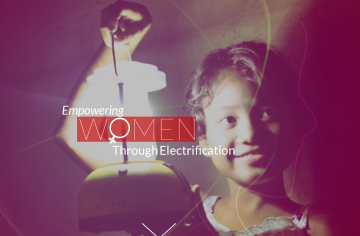
The research area of the project is "Electrification through grid and decentralized systems", which is one of the five research areas under the ENERGIA Gender and Energy Research Programme Framework (a Five-Year Sub-Programme on "Gender and Sustainable Energy for All", supported by the DFID ). This programme aims to build the evidence base for improving energy interventions' effectiveness by taking a gender approach. Taking a gender approach in policy and action will be necessary to achieve the target of universal access to energy by 2030.
The EFEWEE project aims to examine how women's opportunities and empowerment are affected by:
- The choice and design of technological system, with a specific focus on comparing grid/centralized and decentralized solutions for electricity supply;
- Ownership and management of the systems;
- The process of electrification;
- Socio-cultural factors and practices (e.g., gender ideologies, roles and relations, household finances, poverty, etc.);
- Policy, regulations, and financing schemes;
- International actors, development partners, and non-governmental/civil society.
By examining these issues for various types of interventions in different contexts, the project team intends to provide an analytical comparison of the processes, technologies, and contextual factors that come into play in electrification in terms of how they condition women's degree of empowerment.
